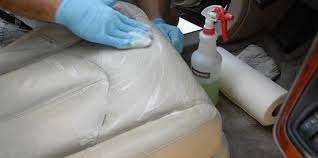In this day and age, buying and selling used cars online has become more prevalent than ever. With the convenience of e-commerce, individuals seeking to sell their old, unwanted vehicles must be cautious not to fall for those scammers ready to pounce on unsuspecting sellers. In this blog post, we will arm you with knowledge on how to avoid junk car scams, ensuring that your selling experience remains safe and hassle-free.

Content
1. Trust Your Gut
As the old saying goes, “If it sounds too good to be true, it probably is.” Trusting your instincts is crucial when dealing with potential junk car buyers who offer substantial amounts for vehicles in poor condition. While it’s natural to feel excited about a potential sale, take a step back and evaluate the offer realistically. Scammers may try to lure you by promising inflated prices, only to disappear when it’s time for payment.
2. Research, Research, Research
Prior to entering the used car market, arm yourself with knowledge by conducting thorough research. Understand the average market value of your vehicle, considering factors such as its age, condition, and model. By setting a realistic asking price, you can significantly reduce the chances of attracting scammers or suspicious buyers.
3. Beware of Wire Transfer Requests
Scammers often try to push sellers into accepting payments via wire transfer, insisting on its convenience and quickness. However, it is crucial to remain vigilant as this method can be easily exploited. Wire transfers are irreversible, meaning that once the scammer receives the vehicle, they can easily disappear without transferring the funds. Opt for cash or a secure electronic payment method to avoid potential losses.
4. Meet in Person
One of the best precautions against scams is to arrange a face-to-face meeting with the potential buyer. By doing so, you can verify their identity and ensure their interest is genuine. Meeting in a well-populated and public area during daylight hours will provide you with an additional layer of safety. Stay cautious when conducting the transaction and never provide sensitive information or vehicle documents upfront.
5. Recognize Fraudulent Emails and Text Messages
Scammers often employ various tactics to deceive sellers remotely, resorting to emails or text messages that appear legitimate. Be cautious of suspicious grammar, broken English, or emails from generic, free email providers. Take note of any abnormal requests or excessive details that deviate from the usual vehicle sales process. When in doubt, trust your instincts and avoid engaging with such individuals.
6. Demand a Test Drive
A genuine buyer will likely want to test drive the vehicle before finalizing the purchase. Be wary of those who avoid test drives, citing various excuses. Scammers may not be interested in a test drive, as their primary aim is to acquire the vehicle by any means necessary. Insist on accompanying potential buyers during the test drive to protect yourself and the vehicle.
7. Seek Professional Assistance
If you want peace of mind during the selling process and remain protected from scams, consider seeking professional assistance. Auto dealerships, trusted brokers, or online platforms dedicated to the buying and selling of used cars can offer a safe environment. These avenues often provide secure payment options and verification mechanisms to ensure a seamless transaction.
In a world filled with uncertainties, it is vital to stay alert and informed when selling your old vehicle. By trusting your instincts, conducting thorough research, and being cautious during interactions, you can protect yourself from falling victim to junk car scams. Remember, your safety and peace of mind are worth much more than a quick and dishonest sale. Stay sharp and stay safe!

Tom’s blog is your passport to adventure. If you’ve got an itch for travel and a love for the road, join him in exploring new horizons. His writing is the ultimate road trip planner and companion.











